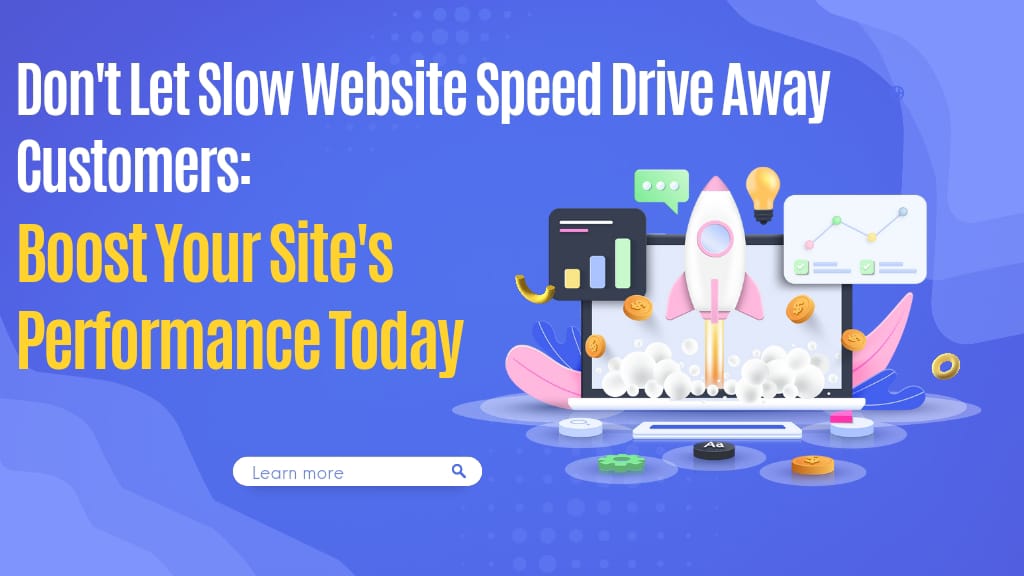
Don’t Let Slow Website Speed Drive Away Customers: Boost Your Site’s Performance Today
Website speed and performance are critical factors that can impact user engagement and search engine ranking. A slow-loading website can drive visitors away, leading to decreased user engagement and lower search engine ranking. On the other hand, a fast-loading website can improve user experience, increase engagement, and improve search engine ranking.
In this blog, we will discuss the impact of website speed and performance on user engagement and search engine ranking.
User Engagement
Website speed and performance can significantly impact user engagement. According to research, a one-second delay in website loading time can lead to a 7% reduction in conversion rates. Additionally, 40% of website visitors will abandon a website that takes more than three seconds to load. These statistics highlight the importance of website speed and performance in creating a positive user experience and keeping visitors engaged.
A fast-loading website can help visitors navigate your site quickly and easily, improving their overall experience. This can lead to increased user engagement, such as longer page views, higher click-through rates, and increased conversions. In contrast, a slow-loading website can cause frustration and lead to visitors leaving your site before engaging with your content.
Search Engine Ranking
Website speed and performance are also critical factors in search engine ranking. Google has stated that website speed is a ranking factor in its search algorithm, meaning that faster-loading websites are likely to rank higher in search engine results pages (SERPs). This is because Google wants to provide users with the best possible search experience, which includes fast-loading websites.
A slow-loading website can also impact search engine crawling and indexing. When search engines crawl and index your website, they analyze its content and structure to determine its relevance and rank it in search results. A slow-loading website can cause search engines to crawl and index fewer pages, which can negatively impact your search engine ranking.
Improving Website Speed and Performance
To improve website speed and performance, there are several best practices that businesses can follow:
Optimize images – Large images can slow down website loading time. By optimizing images, businesses can reduce their file size and improve website speed.
Minimize HTTP requests – Websites with many HTTP requests, such as loading multiple JavaScript and CSS files, can cause longer loading times. By minimizing HTTP requests, businesses can improve website speed.
Use a Content Delivery Network (CDN) – A CDN can distribute website content across multiple servers worldwide, reducing the distance between the user and the server and improving website speed.
Minimize server response time – The time it takes for a server to respond to a user’s request can impact website speed. By minimizing server response time, businesses can improve website speed.
Use a caching plugin – Caching can reduce website loading time by storing frequently accessed data, such as images and HTML, in the user’s browser. This reduces the need to reload the same data on subsequent visits.
Final Thoughts
At Words And Cappuccinos, we are proud to be recognized as the best content writing agency. Our team of experienced content writers is dedicated to delivering high-quality content that drives traffic, boosts engagement, and improves search engine ranking.
We conduct in-depth keyword research and use the latest SEO techniques to create content that aligns with your brand’s voice and resonates with your target audience. Whether you need blog posts, product descriptions, or social media content, we have the expertise and skills to deliver exceptional results.
Contact us today to learn more about how our content writing services can help your business succeed online.




